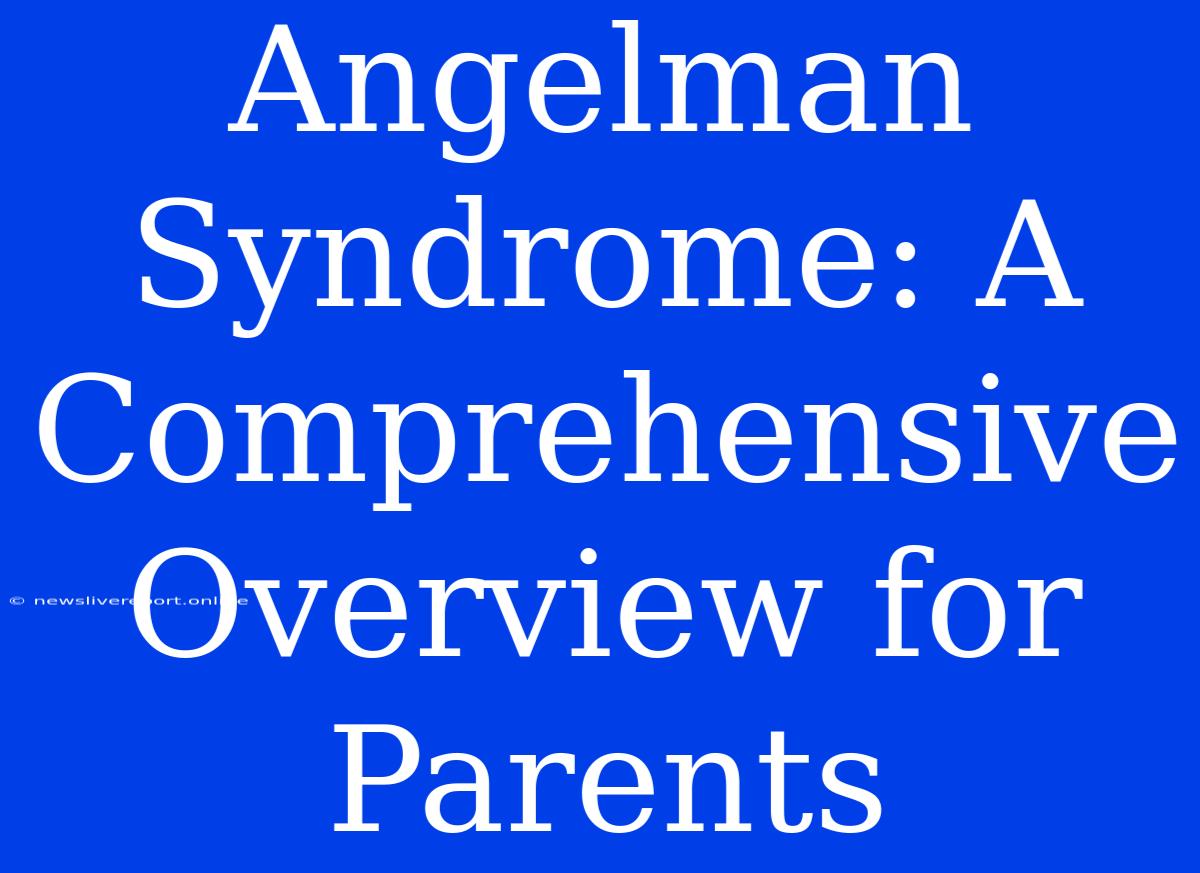Angelman Syndrome: A Comprehensive Overview for Parents
Angelman Syndrome (AS) is a rare neurogenetic disorder that affects a child's development. It is characterized by a unique set of symptoms, including developmental delays, intellectual disability, seizures, a happy demeanor, and movement problems. While there is no cure for AS, early intervention and support can significantly improve a child's quality of life.
This article serves as a comprehensive guide for parents of children with Angelman Syndrome, providing information on its causes, symptoms, diagnosis, treatment, and support resources.
Understanding the Causes of Angelman Syndrome
Angelman Syndrome arises from a genetic problem involving the UBE3A gene, which is crucial for proper brain development. The most common cause is a deletion of the UBE3A gene on chromosome 15. Other causes include:
- Maternal uniparental disomy: When both copies of chromosome 15 come from the mother.
- Imprinting defects: When the UBE3A gene on the chromosome 15 inherited from the mother is silenced.
- UBE3A gene mutations: Changes in the UBE3A gene sequence.
Recognizing the Symptoms of Angelman Syndrome
The signs and symptoms of AS can vary in severity from child to child, but some common features include:
Developmental Delays:
- Delayed or absent speech: Children with AS often have significant delays in language development and may not speak at all.
- Delayed motor skills: Problems with walking, running, and coordination are common.
- Intellectual disability: Children with AS have varying degrees of intellectual disability.
Characteristic Behavior:
- Happy demeanor: Despite the challenges, children with AS often display a cheerful disposition, frequently laughing and smiling.
- Excessive hand-flapping: This is a common characteristic that can be repetitive.
- Short attention span: Difficulty focusing and staying on task.
- Sleep disturbances: Issues with falling asleep and staying asleep.
Other Symptoms:
- Seizures: Seizures are common in individuals with AS.
- Movement problems: Ataxia (poor coordination), tremors, and jerky movements.
- Facial features: A wide mouth with a protruding tongue, a pointed chin, and wide-set eyes.
Seeking Diagnosis and Treatment
If you have concerns about your child's development, it is important to seek professional help. Diagnosis is typically based on:
- Clinical evaluation: A detailed review of the child's medical history, developmental milestones, and physical examination.
- Genetic testing: To confirm the presence of the genetic abnormality.
Treatment for Angelman Syndrome focuses on managing the symptoms:
- Anti-epileptic medications: To control seizures.
- Physical therapy: To improve muscle strength and coordination.
- Speech therapy: To enhance communication skills.
- Occupational therapy: To develop fine motor skills and self-help skills.
- Behavioral therapy: To address challenging behaviors and promote positive interactions.
Support for Families
Living with Angelman Syndrome can present challenges, but there is a network of support available for families:
- Angelman Syndrome Foundation: Provides information, resources, and support for families.
- Local Angelman Syndrome support groups: Connect with other families facing similar challenges.
- Therapists: Can provide counseling and coping strategies.
A Positive Outlook
While there is no cure for Angelman Syndrome, early intervention and support can help children thrive. By understanding the causes, recognizing the symptoms, and seeking appropriate treatment, families can create a positive and fulfilling life for their children with AS.
Remember: There is hope, and you are not alone.
This information is intended for informational purposes only and does not replace professional medical advice. It is essential to consult with your child's healthcare provider for any questions or concerns about Angelman Syndrome.

